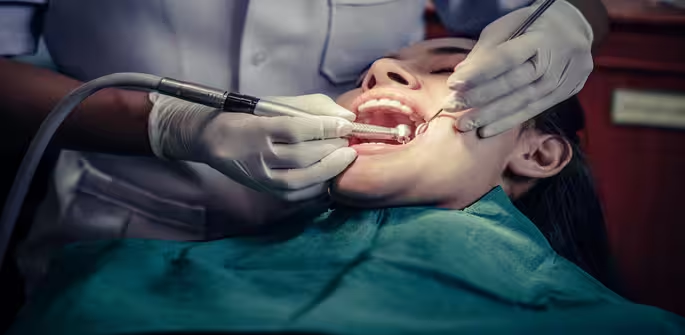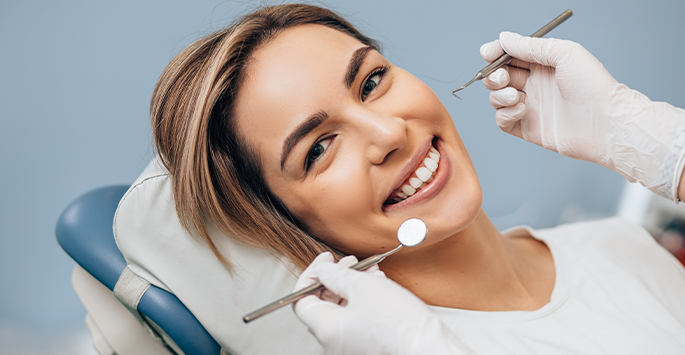
Residents of Orange Park— it is true, tooth pain can be annoying, but there is a range in pain and severity of damage. The difference is important since more serious cases would require you to be treated by an emergency dentist rather than receiving regular dental care.
But what exactly is regular vs emergency dental care? When should you visit an emergency dentist? And if you are a resident of Orange Park, which emergency dentist might be good for you?
We will answer these questions in this article.
Emergency vs Regular Dental Care:
Regular Dental Care: Regular dental care routine check-ups that can entail professional cleanings to dental x-rays. Dental examinations are regular inspections of your teeth to identify any cavities or issue in general with your teeth that require work to be done on them. Professional cleanings are essentially removing any plaque or tartar from your teeth using specific dentistry equipment. Dental x-rays are done when assessing the health of your teeth by identifying any issues not easily observable by a physical exam (MedlinePlus).
Emergency Dental Care:
Emergency dental care is dental care required for a dental emergency. What is a dental emergency? A dental emergency can be anything that requires immediate medical attention. Here are some examples:
- Broken or knocked out teeth
- A painful toothache or jaw pain that won’t go away
- Bleeding and/or Pain Following a Tooth Extraction
- Bleeding gums
Types of Emergency Dental Care Situations:
Broken or Knocked out Teeth:
Brocken or knocked out teeth are a common occurrence and in the case of adult teeth, there are steps you can take yourself to insert it back in. To insert your knocked out tooth, rinse it in milk or saline, hold it by the crown and gently put it back into the socket. However, if you are unable to insert it in, it is important to put it in milk and phone your dentist. The sooner a missing tooth is re-planted—ideally within 30 minutes, the more likely it is to embed itself back into the gum (NHS).
Persistent Toothache or Jaw Pain:
Toothache and jaw pain can both be a sign of something more consequential that may require an emergency visit to the dentist instead of waiting for a routine dental appointment.
For tooth pain, one of the most common causes of it is a cavity. The deeper the cavity, the more likely the nerve in the tooth will be exposed, which could lead to increased pain and a sensitivity to hot or cold foods. Sometimes, the cavity could cause an infection at the root of the tooth, resulting in a small amount of pus known as abscess (Harvard Health). Abscess can also cause swelling of the jaw and are dangerous due to the fact that the infection can spread to other parts of your body, such as jaw, head, and neck (Mayo). In this case, it is of paramount importance to seek emergency dental care.
Bleeding and/or Pain Following a Tooth Extraction:
A blood clot usually forms after a tooth extraction, however at times the blood clot may get dislodged and bleeding may persist. Minor pain will usually accompany a tooth extraction for a short period of time, however, if the pain persists, it could be a sign of an infection. If any of these two situations seem to be happening to you, it is important to seek emergency dental care (NIH).
Bleeding Gums:
There can be many reasons for bleeding gums. One cause of bleeding gums can be a buildup of plaque, which could be the precursor of gum diseases such as gingivitis. There can also be other underlying reasons for gum bleeding, such as diabetes, hormonal imbalances, a specific vitamin deficiency, and blood clotting disorders.
If bleeding gums don’t improve within two weeks, then it is an indicator that you should schedule an emergency appointment with the dentist (Cleveland).
Broken Braces:
Usually, broken braces do not require medical emergencies.
However, sometimes they may poke a part of your cheek or tongue, cause severe pain and bleeding, and interfere with your ability to eat and speak. In situations like these, seeking emergency dental care would be beneficial.
Contact your Orange Park Emergency Dentist Right Away.
Dental emergencies should be taken very seriously. If some of the above issues are happening to you, it is important to contact a local emergency dentist.
As we have discussed, ignoring many of the signs can lead to serious infections, making it even more important to find your nearest dentist and schedule an appointment.
When faced with a dental emergency or traumatic injury in Orange Park, FL, schedule an appointment with your Orange Park emergency dentist as soon as possible. We offer urgent appointments and treat a variety of emergency dental conditions, such as toothaches, knocked out teeth, oral infections and more. We accept most major dental insurances and also offer convenient self-pay options. Our friendly and competent staff is here to help you through a dental emergency.
Dentists are equipped to handle emergencies and provide necessary treatment. By seeking prompt dental care, you increase the chances of saving your tooth, minimizing complications, and restoring a healthy smile.


